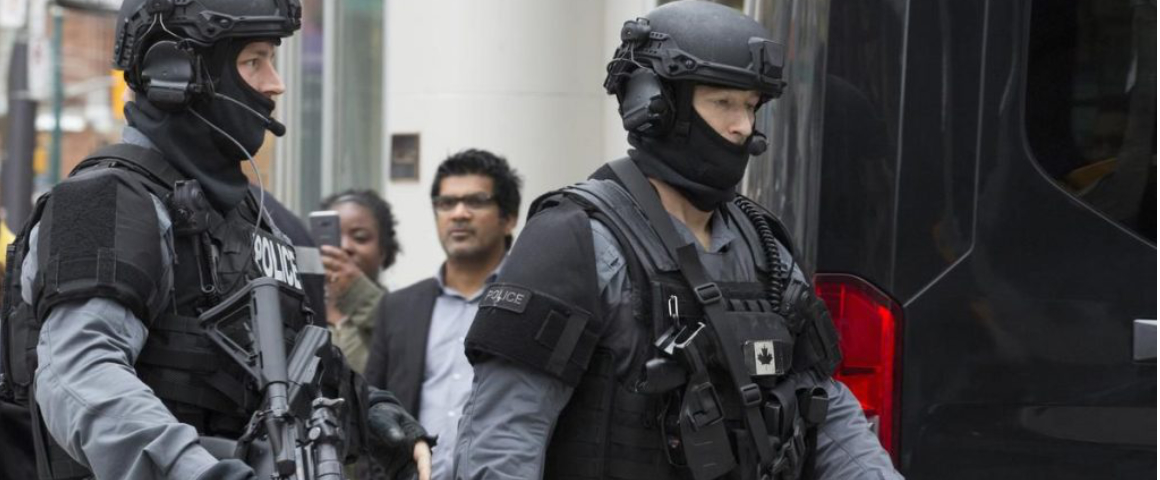PV Toronto Bureau
After months of consultation, deputations and debate, Olive Chow has passed her first budget as Toronto Mayor on February 14. While she was able to staunch the bleeding on city services and temporarily slow the absolute decline of basic city functions which working people rely on, it comes at the cost of political capitulation to capitalist interests by giving huge increases to police and forcing working people to foot the bill.
The new budget marks the culmination of a return to a more participatory budget process which previous administrations, bolstered by a series of increasing “strong mayor powers,” had done away with. This meant a return of broader public consultation in the form of town halls, surveys, consultation meetings and forums alongside the usual deputations.
The consultations were centred around the dire budget crisis facing the city, with the mayor framing it as the public’s opportunity to highlight how funding should be prioritized and deprioritized. Working people in Toronto were clear: it is time to fund services which ease the burden of the cost-of-living crisis that is strangling them. Overwhelmingly, city residents also made clear that the city could find the funds in the police budget.
Some of the public consultations had an impact, with both drafts and the final budget presenting no major cuts to services. This isn’t to say there weren’t any reductions – standards were reduced for services like the TTC and Wheel Trans, and departments across the city are closing positions that have been left unfilled for some time.
Really, however, the budget just kicks the can further down the road on desperately needed state-of-good-repair investments. Any TTC rider can attest that serious infrastructure failure, like the July 2023 track derailment which permanently decommissioned the Scarborough Rapid Transit system, hangs like an axe every day.
Where did the money go then, if not to invest in the critical services like housing and the TTC? It seems, as is often the case, that council decided that the Toronto Police Services were most in need. The police have been awarded one of the largest dollar amount increases in recent memory – over 30 percent more than the controversial $48 million increase handed over by John Tory in his final budget as mayor.
In addition to the generous new funding, the city is providing police with expanded powers. A new system of management and monitoring for rallies and protests will be developed, with advanced powers given to the police to restrict working people’s right protest. In a chilling sign of what is to come, the motion’s mover Councillor James Pasternak cited the recent protests against the Gaza genocide and a rally by healthcare unions as his motivating factors. The motion passed after some debate, with Chow breaking from council’s centre-left block to cast the deciding vote.
These giveaways to the police and to council’s right wing mirror the political compromises Chow has already made, like her sellout of Ontario Place to the Ford government’s mega-spa plan in exchange for some short-term provincial funding. This time, it was to ensure popular support for her 9.5 percent property tax hike to fund the budget.
Like the municipal sales tax proposed last fall, property taxes are a regressive form of taxation which adds pressure to working people, who are struggling amidst a historic cost-of-living crisis which is having a particularly dramatic impact on housing costs.
Instead of orienting the growing centre-left bloc toward democratic control of the city and its services, looking to end and even claw back the privatizations which have occurred since amalgamation, Chow’s administration is focusing on end-delivery of services at any cost, no matter who pays.
This kind of social democratic approach to governance will alienate working people, while empowering the right wing and delivering the very pro-corporate and pro-police policies which they promote. Cracks are already beginning to show in Chow’s base, as public support has weakened and some of her most vocal advocates have turned their backs.
In response to this compromise budget and the political background for it, the Communist Party’s Toronto Committee is restating its longstanding call for a democratic, labour-led civic reform movement can unite people’s movements in the struggle for progressive municipal politics.
This struggle includes fighting for:
- Adequate provincial funding for municipalities through needs-based grants or by providing wealth taxing powers to cities.
- Fifty percent reductions in property taxes, including by removing the $2.2 billion education levy and uploading the costs for transit, public health, housing and social assistance.
- Elimination of all development fees, which are simply passed on to tenants and home buyers in the form of higher rents and prices.
- Fifty percent reduction to the police budget and demilitarization of police units.
- Expanded programs that de-task police from mental health crisis calls and create community-led crisis response teams.
- Strong civilian control over the police, through a completely independent civilian agency that is publicly accountable and transparent and has powers to fire, hire and discipline.
- Elimination of wait lists for social housing, by building 80,000 units of rent-geared-to-income social housing units and repair and upgrade to existing stock.
- Sufficient and safe shelters for unhoused people and an end to encampment evictions.
- A roll-back on housing costs and real rent controls, so that nobody is compelled to spend more than 20 percent of household income on housing.
- Expand and improved transitional, supportive and long-term housing to women and children fleeing domestic abuse.
Support socialist media!
If you found this article useful, please consider donating to People’s Voice or purchasing a subscription so that you get every issue of Canada’s leading socialist publication delivered to your door or inbox!
For over 100 years, we have been 100% reader-supported, with no corporate or government funding.




